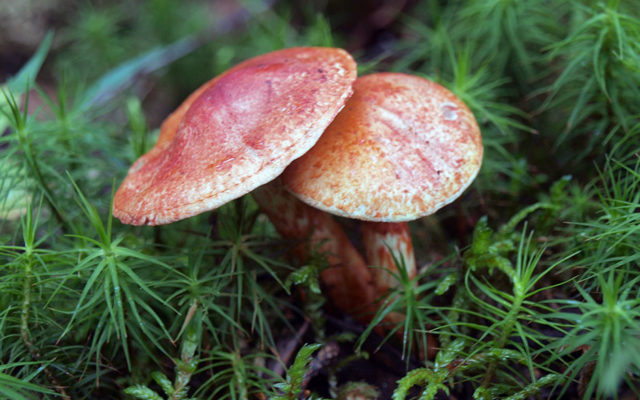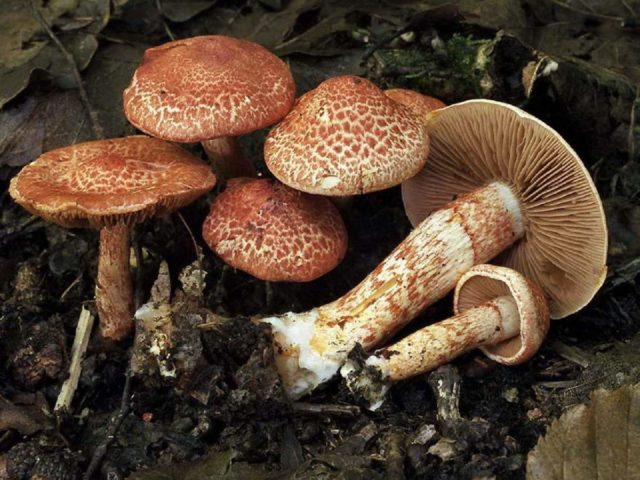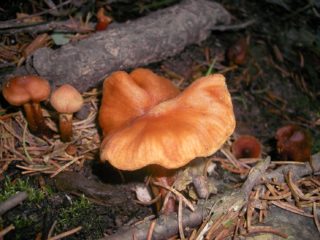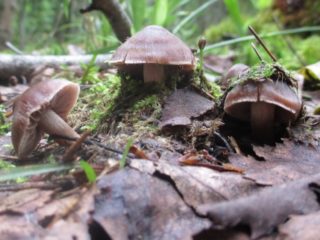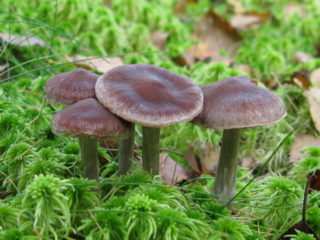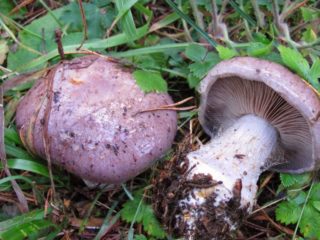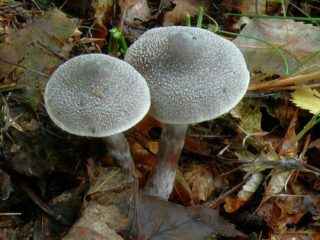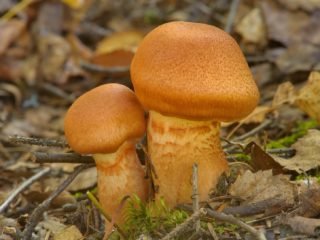Content
Lazy cobweb (lat. Cortinarius bolaris) is a mushroom of the cobweb family (Cortinariaceae). It is also popularly called red-scaled and bump mushroom. Like other species of this genus, it received its name for the “cobwebby” film that connects the edge of the young mushroom’s cap to the stem.
Description of the lazy web spider
Lazy cobweb is a small reddish mushroom. It is distinguished by its bright color, so it is quite difficult to confuse it with other representatives of the “forest kingdom”.
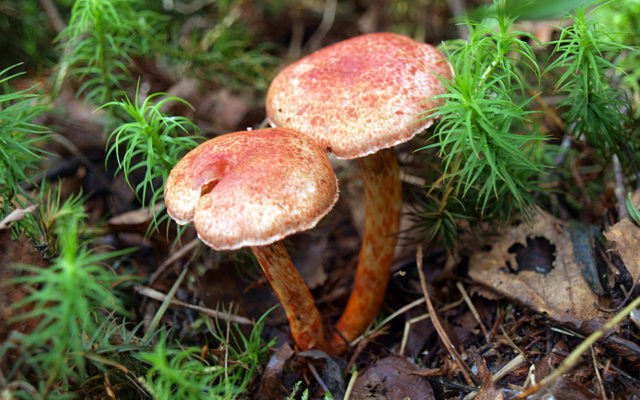
Bright and remarkable appearance are the distinctive features of the mushroom
Description of the cap
The cap is relatively small in size - no more than 7 cm. Its shape is poular-shaped when young, cushion-shaped, slightly convex when mature. In older specimens it becomes prostrate, especially during dry periods.The cap is scaly, its entire surface is covered with orange, red or rusty-brown scales. This characteristic feature makes it easy to see the lazy web from afar, and also to distinguish it from other mushrooms.
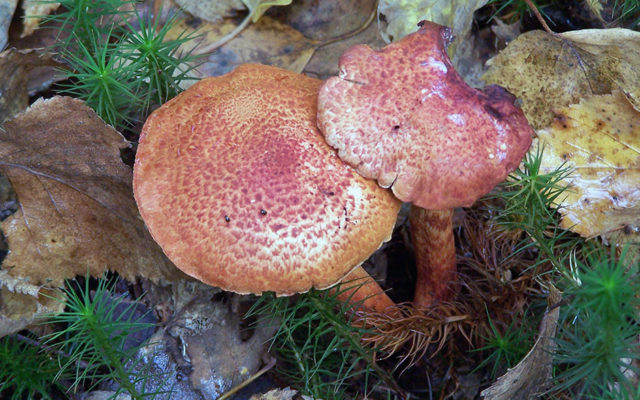
The outstretched cap is only found on mature mushrooms.
The flesh of the cap is dense, yellow, white or light orange in color. The plates are adherent, wide, and not too often located. Their color changes depending on age. They are gray at first and later turn rusty brown. The spore powder is the same color.
Description of the leg
The stem is cylindrical, sometimes tuberous at the base. Not high, 3-7 cm, but quite thick - 1-1.5 cm in diameter. It is covered with brown-red scales. At the top there are reddish colored belts.
The color of the leg is:
- copper-red;
- red-brown;
- orange-yellow;
- creamy yellow.
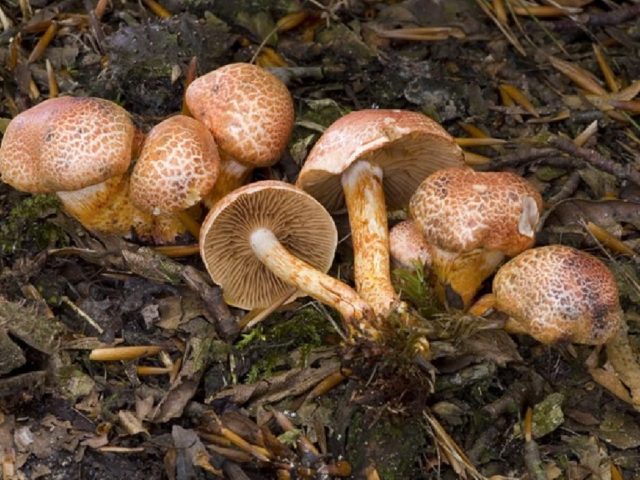
The scaly leg distinguishes the species
Where and how does it grow
Lazy cobweb grows singly or in small groups, in deciduous and coniferous plantings. It forms mycorrhiza with trees of a wide variety of species. Prefers acidic, moist soils. Often grows on moss litter. Fruiting is short - from September to October. It is found mainly in the European part of Russia, as well as in Eastern Siberia and the Southern Urals.
Is the mushroom edible or not?
Lazy cobweb is an inedible mushroom. The pulp contains toxins, which gives the right to consider it poisonous. The amount of toxic substances is insignificant, but it is easy to get poisoned when eating mushrooms, and the poisoning can be quite serious.
Doubles and their differences
The only counterpart is the peacock web spider. It also contains toxic substances and is therefore poisonous. It differs in the color of its scales - they are copper-red, as well as the purple color of the plates.
Conclusion
Lazy cobweb is a mushroom unsuitable for collection, found everywhere in forests. Its beautiful and unusual appearance attracts mushroom pickers, but it is better to avoid it. The mushroom is considered poisonous and therefore inedible.
